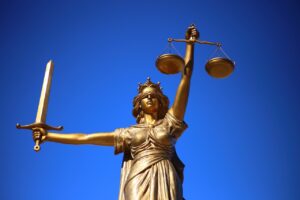
Strengthening local human rights: with Utrecht in the lead
For all the justified concerns about the rule of law and human rights today, there are also inspiring elements and innovations. One is that of human rights cities, often defined as local communities and socio-political processes where human rights play a key role as fundamental values and guiding principles. The city of Utrecht was the…
Read more
Introducing ‘BIAS’, or rather: a project on assessing bias in cultural heritage collections in theory and practice
This blog has been cross-posted from KB LAB. See the original blogpost here. ‘BIAS – Towards a Bias Impact Assessment Scale for digitised cultural heritage collections’. Under this ambitious title, we – two legal scholars specialising in the interplay between law, technology and culture – started our Researcher-in-Residence (RiR) project at the National Library of…
Read more
From Vertical Hierarchies to Horizontal Networks: Evolving Coordination in Multilevel Systems
In recent decades, governance structures around the world have undergone significant transformation, with multilevel systems emerging as a dominant model. In this context, multilevel governance has emerged as a key concept, highlighting how power is shared both vertically (across levels) and horizontally (among actors at the same level) to shape policies, deliver services, and provide…
Read more
Turbulent Times Ahead for Global Justice and the Rule of Law: US Sanctions against the International Criminal Court
Turbulent Times Ahead for Global Justice and the Rule of Law: US Sanctions against the International Criminal Court On 20 January 2025, Donald Trump was once again sworn in as president of the United States of America (US), ushering in a period of uncertainty for the future of global justice and the rule of law….
Read more
Extraterritorial human rights obligations of states for transboundary climate harm: a brief look at recent developments
The determination of territorial jurisdiction for transboundary climate harm presents a significant legal challenge in climate change litigation as evidenced by recent cases decided by the European Court of Human Rights (ECtHR) and the Committee on the Rights of the Child. While it is widely accepted that states have extraterritorial human rights obligations under certain…
Read more
The power to be free from algorithmic governance experimentation
From algorithms used in policing and the judicial system, to numerous social welfare fraud detection cases, examples of implementation of algorithms in public governance amass in recent years. Algorithmic governance can rely on surveillance, for instance in cases of spatial crime forecasting, or on censorship, such as when used for repression of protests. In this…
Read more
Linking Women, Water and Peace: Promoting Women in Water Diplomacy South Caucasus
Water does not know boundaries, it ebbs and flows between people, communities, states, time and generations. Globally, water is deeply connected to place, people, history, spirituality, daily life, basic needs, human rights, movement, recreation, sovereignty, industry, economy, and power. Upstream and downstream states are unavoidably interconnected. There is a significant amount of water on…
Read more
On the Relative Importance of the AI Act Right to Explanation
Note: This is a cross-post of a blog originally published on the The Digital Constitutionalist Excerpt: The initial Commission proposal for the AI Act focused on establishing requirements and safeguards applicable to the various operators of AI systems but lacked individual rights and remedies for persons on the receiving end of such systems. In…
Read more
The future of data driven investigation in light of the Sky ECC operation
In our article, ‘The future of data driven investigations in light of the Sky ECC operation’, we examine whether or not, and on what terms, there is a future for data driven criminal investigations. To answer the research question, we identified the main characteristics and legal criteria for data driven investigations. We use the Sky…
Read more
Controversy Sparks in Israel over Fear of Rule of Law and Human Rights Backsliding
Recently, Israeli constitutional law outlined the vulnerability of the Israeli legal system to systematic constitutional threats by the religious right-wing government led by re-elected Prime Minister Benjamin Netanyahu. This exposes Israel’s legal system to rule of law and human rights backsliding – what is it all about, and why is it happening now? In this blog,…
Read more

